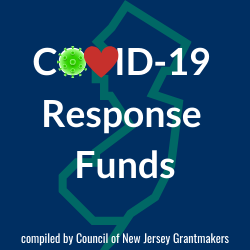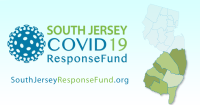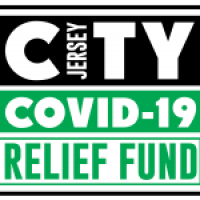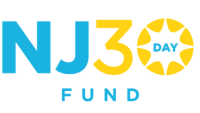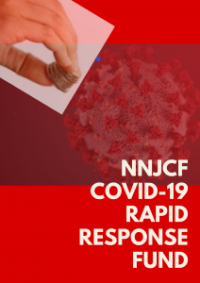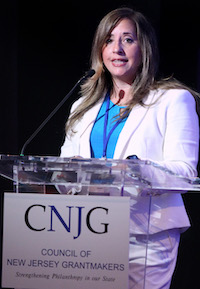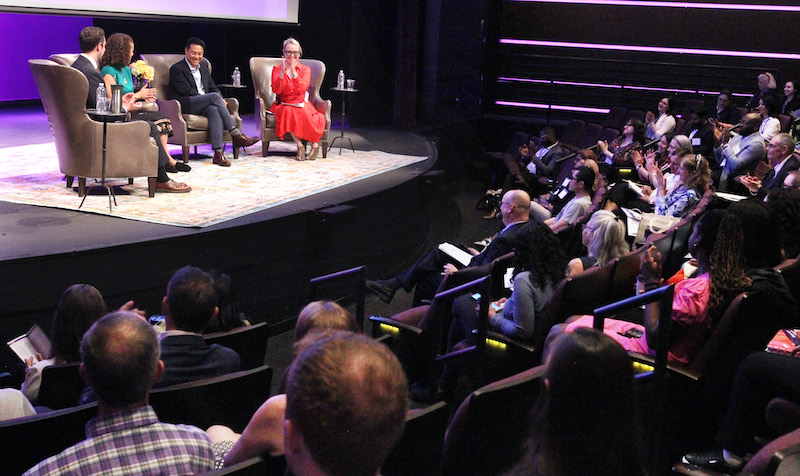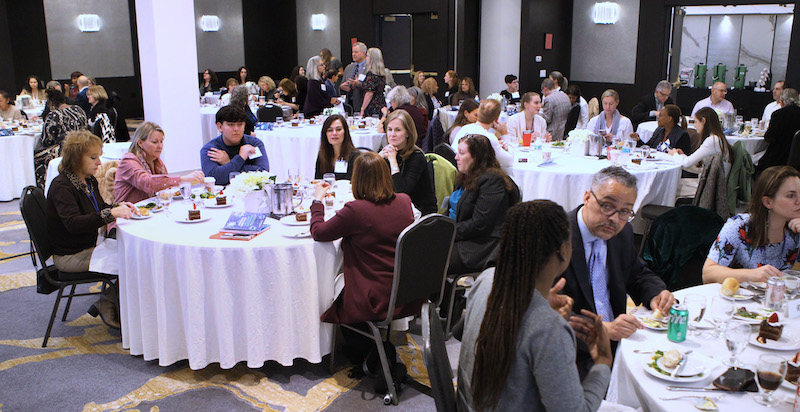Site Search
- resource provided by the Forum Network Knowledgebase.
Search Tip: Search with " " to find exact matches.
Late last year, the Texas legislature passed a series of bills targeting migration at the Texas-Mexico border. This included Senate Bill 4 (SB4), which criminalizes anyone suspected of crossing the border without authorization to enter or re-enter into Texas. Since then, a series of legal decisions have created confusion and uncertainty. Similarly, Florida has passed legislation targeting community IDs and driver's licenses for immigrants and criminalizing the transportation of undocumented immigrants into the state.
As battleground border states, Florida and Texas have had an immense influence across the country, as other states have stood up similar anti-immigrant bills. Most recently the governor of Iowa signed SF2340, a bill which made it a state crime for immigrants with prior deportation orders from the U.S. to reside in the state. The Louisiana governor recently introduced SB 388, which, as in Florida, criminalizes undocumented immigrants entering or reentering the state. Meanwhile, Georgia has introduced legislation to punish local governments for having sanctuary city policies.
In an election year when immigration is the top issue in the minds of many voters, these policies exacerbate xenophobic, anti-immigrant, and racist sentiments that further dehumanize and criminalize immigrant and refugee communities while also expanding state powers to detain, deport, and terrorize undocumented individuals. To respond to this moment, organizations are leveraging different strategies–from litigation to organizing–to prevent the implementation of these policies and create a more welcoming country for all.
Join us for a panel conversation with frontline leaders, which will be followed by a funder-only discussion.
Speakers
Jennefer Canales-Pelaez, Texas Policy Attorney & Strategist, Immigrant Legal Resource Center (ILRC)
Erica Johnson, Founding Executive Director, Iowa Migrant Movement for Justice (Iowa MMJ)
Dauday Sesay, Founder & Executive Director, Louisiana Organization for Refugees and Immigrants (LORI) & National Network Director, African Communities Together (ACT)
Moderator
Cairo Mendes, Senior Director of State and Local Programs, GCIR
New Jersey Pandemic Relief Fund
Hosted by: Community Foundation of New Jersey
The New Jersey Pandemic Relief Fund (NJPRF) was established to raise funds and organize and coordinate resources to fight the medical, social and economic impact of COVID-19 on New Jersey’s most vulnerable. One hundred percent of donations received online by NJPRF will be used to fight the medical, social, and economic impact of COVID-19, supporting organizations that provide essential services and aiding those on the front line of the pandemic.
4/20 - New Jersey Pandemic Relief Fund announces statewide health grants
5/8 - NJPRF gives out 27 additional food security and need-based grants
5/13 - New Jersey Pandemic relief fund announces fourth round of grants
5/15 - Pandemic Relief Fund’s Murphy, Weinreich offer details on its goals — now … and moving forward
7/16 - Pandemic Relief Fund wraps up phase 1, having raised $37M and provided $18M in immediate relief
7/30 - Pandemic Relief Fund Provides $4.5 Million in Cash Assistance
9/11 - NJPRF Matches Grants to Newark and Camden Teachers
11/20 - New Jersey Pandemic Relief Fund gives $2.6 Million to help close digital divide
12/2 - New Jersey Pandemic Relief Fund gives $4.5 Million to organizations helping minority and women owned businesses
12/16 - New Jersey Pandemic Relief Fund received $20 Million from Mackenzie Scott
2/2 - N.J. Pandemic Relief Fund to provide $2.5 million in grants to address mental health issues
South Jersey COVID-19 Response Fund
Hosted by: Community Foundation of South Jersey
The South Jersey COVID-19 Response Fund is an opportunity for individuals and organizations to pool resources to address both the short and long-term impact of COVID-19 in local towns, counties, and the South Jersey region as a whole.
6/4 - South Jersey COVID-19 Response Fund Announces Second Round of Grants
7/20 - South Jersey COVID-19 Response Fund Announces Third Round of Grants
Restaurant Rescue Fund
Hosted by: Heart to Harvest Foundation (NY)
The Restaurant Rescue Fund will establish a grant program for restaurateurs in the New York Metro area and New Jersey. The goal is to help owners reopen their restaurants and the small farmers who supply them. Ongoing assistance will be available to grant recipients, to include assistance with landlords, vendor payments, resources that can help with HR and more.
Hoboken Relief Fund
Hosted by: Hoboken Rotary Club Foundation
The Hoboken Relief Fund will solicit donations and provide grants to local businesses and Hoboken residents impacted by the COVID-19 pandemic. The Hoboken Relief Fund will be Hoboken’s authorized vehicle for COVID-19 relief, and act in ways as an umbrella for other, ongoing, complementary efforts to address various pressing needs in our community related to COVID-19, such as food insecurity.
5/11 - Virtual fundraising event headlined by Buddy Valastro and local Hoboken artists streamed in May
8/25 - Hoboken Relief Fund issues grants to local businesses
COVID-19 Emergency Financial Assistance Fund
Hosted by: Interfaith Neighbors
Funded by the generosity of several local foundations including the Jules L. Plangere, Jr. Family Foundation, the Stone Foundation of New Jersey and the Jay & Linda Grunin Foundation, as well as many individual donors; the COVID-19 Emergency Financial Assistance Fund is providing financial assistance to individuals and families in Monmouth County that have experienced financial distress as a result of the COVID-19 pandemic.
Jersey City COVID-19 Community Relief Fund
Hosted by: Jersey City Economic Development Corp
The Jersey City COVID-19 Community Relief Fund will provide resources and support to Jersey City’s most vulnerable residents. It will help minimize hardships for needy families and seniors by improving access to food and other necessities. The Fund will also invest in the local Jersey City economy by helping small businesses and nonprofits - the backbone of Jersey City’s neighborhoods - get back on their feet.
COVID-19 Emergency Response Fund
Hosted by: Jewish Federation of Southern Jersey
The COVID-19 Emergency Response Fund will provide direct support to individuals and families by providing essential resources for those in crisis due to the COVID-19 pandemic.
Montclair Foundation Emergency Fund
Hosted by: Montclair Foundation
The Montclair Foundation Emergency Fund was created to support key local outreach organizations with emergency grants so these community partners can receive immediate financial help in this difficult time.
5/5 - Montclair Foundation Awards $15,000 From COVID-19 Emergency Grant Fund
5/13 - Montclair Foundation Funnels $65K To Coronavirus Relief
New Jersey 30 Day Fund
Hosted by: New Jersey 30 Day Fund
The New Jersey 30 Day Fund provides forgivable loans for New Jersey-based small businesses. The forgivable loan is intended to provide immediate financial assistance (within maximum three days) to meet payroll, preserve healthcare coverage for employees and save jobs while they await recently approved federal funding and reopening.
7/10 - 30 Day Fund Announces 100 Small Business Loans
Garden State Relief Fund
Hosted by: New Jersey Community Capital
The Garden State Relief Fund ensures that small businesses and non-profits are provided with quick yet equitable and inclusive opportunities for relief, stability, and growth through low interest loans. The fund provides this financial support for those that often lack access to conventional capital and have been disproportionally affected by this evolving public health crisis.
NNJCF COVID-19 Rapid Response Fund
Hosted by: Northern New Jersey Community Foundation
The NNJCF COVID-19 Rapid Response Fund provides immediate resources to vetted small nonprofit organizations in Bergen County, New Jersey with limited budgets serving vulnerable populations in this area. The fund will also support nonprofit arts organizations and those providing arts programs and services in the county to build community engagement in a time of isolation.
4/30 - Northern New Jersey Community Foundation's COVID-19 Rapid Respond Fund Raises Nearly $240,000
5/22 - NNJCF awards $240K worth of grants for COVID-19 response
9/29 - Northern NJ Community Foundation's COVID-19 Rapid Response Fund Awards Over $300,000 to Nonprofits in Region
PHL COVID-19 Fund
Hosted by: Philadelphia Foundation & United Way of Greater Philadelphia and Southern NJ
The PHL COVID-19 Fund rapidly and equitably deploys solutions and resources to help nonprofit community navigate near-and longer-term challenges from COVID-19 and ensure that critical resources remain available for those in their community who need it most. This fund supports nonprofits in the Greater Philadelphia Area—five Pennsylvania counties (Bucks, Chester, Delaware, Montgomery, and Philadelphia) and five Southern New Jersey counties (Atlantic, Burlington, Camden, Cape May, and Cumberland).
4/16 - PHL COVID-19 Fund grants $2.5 million to Nonprofits
4/23 - PHL COVID-19 Fund Provides Rapid Response to Community: $7.3M Distributed to Nearly 200 Nonprofits in Three Weeks
4/24 - PHL COVID-19 Fund, ‘A Godsend’ For Nonprofit Organizations, Distributes 3rd Round Of Grants
5/14 - PHL COVID-19 Fund Continues to Meet Deep Community Needs in Fifth Round of Funding to Nonprofits
6/25 - PHL COVID-19 Fund Deploys Funds to Aid Pandemic Recovery Efforts
7/1 - PHL COVID-19 Fund Awards $4 Million for Arts in Philadelphia Region
9/25 - PHL COVID-19 Fund Awards $400,000 to Philadelphia-area nonprofits
COVID-19 Relief & Recovery Fund
Hosted by: Princeton Area Community Foundation
The foundation assembled a coalition of funders to create the COVID-19 Relief & Recovery Fund to help support nonprofits working with the most vulnerable residents in Mercer County and the surrounding region.
5/29 - COVID-19 Grants Total Over $900,000
New Jersey Arts and Culture Recovery Fund
Hosted by: Princeton Area Community Foundation
A coalition of funders has established the New Jersey Arts and Culture Recovery Fund (NJACRF) to help ensure the survival of the state’s cultural sector that has faced economic devastation from the COVID-19 pandemic. NJACRF will provide grants to the cultural community to offset expenses incurred due to pandemic cancelations, reopening adaptations, and support for artists and sector professionals.
8/20 - NJACRF announces launch of fund
9/3 - WPIX-TV Channel 11 profiles the NJ Arts & Culture Fund by interviewing Jeremy Grunin of the Grunin Foundation and SHarnita Johnson from the Dodge Foundation
9/7 - The Mellon Foundation and NJ’s Own Colberts and Stewarts Help Grow the New Jersey Arts and Culture Recovery Fund
Coronavirus Emergency Relief Fund
Hosted by: Princeton Children’s Fund
The Coronavirus Emergency Relief Fund benefits economically-disadvantaged Princeton families impacted by work stoppage during the outbreak. The fund is supported in part with a grant from the COVID-19 Relief and Recovery Fund of the Princeton Area Community Foundation.
Sustain Summit Fund
Hosted by: The Summit Foundation and Summit Downtown
The Sustain Summit Fund will provide grants to support small businesses that operate in the City of Summit and are experiencing economic hardship as a result of recent closings and restrictions from COVID-19. The first $50,000 in donations will be matched on a 1:1 basis by The Summit Foundation.
5/7 - 'Sustain Summit' Initiative Awards $270K Among 117 Hilltop City Businesses
5/21 - 'Jumpstart Summit' Program formed to Further Assist Summit Businesses' Reopening and Recovery
UWCJ COVID-19 Recover Fund
Hosted by: United Way of Central Jersey
The UWCJ COVID-19 Recover Fund will provide assistance with crucial expenses including rent, utilities, prescription medication/medical supplies, child care and food, identifying clients who are most in need of temporary assistance utilizing referrals from their non-profit community partners.
Salem County Does More: Covid-19 Rapid Response Fund
Hosted by: United Way of Delaware
The Salem County Does More COVID-19 Rapid Response Fund will assist in providing food, shelter, utilities, rent assistance, and other critical services for Salem County residents struggling in the wake of the COVID-19 crisis.
COVID-19 Compassion Fund
Hosted by: United Way of Greater Mercer County
The COVID-19 Compassion Fund supports struggling families in Mercer County financially impacted by the health crisis. Donations will support relief programs, like food pantries and other services to help with basic needs. They continue to work with their partners to identify resource and service gaps and plan for long-term recovery.
Community COVID-19 Fund
Hosted by: United Way of Greater Newark
The Community COVID-19 Fund supports the community and their non-profit partners during the COVID-19 crisis. This is a regional fund serving their 13-municipality footprint including Newark, Irvington, East Orange, West Orange, South Orange, Orange, Belleville, Nutley, Maplewood, Kearny, Harrison, East Newark and North Arlington.
4/17 - United Way of Greater Newark Raises More Than $4M in Donations for Community COVID-19 Fund
4/24 - Mayor Baraka Announces First Round of Newark Grant Awards
UWGUC COVID19 Emergency Fund
Hosted by: United Way of Greater Union County
The UWGUC COVID19 Emergency Fund assists individuals financially impacted due to loss of wages or who incurred debt as a result of COVID19 in the areas of Union County, South Plainfield, and North Plainfield.
Community Response & Recovery Fund
Hosted by: United Way of Gloucester County
The Community Response & Recovery Fund addresses the critical needs of the Gloucester County community through partnership with local non-profit providers. The funds will only be utilized to assist individuals in Gloucester County, New Jersey.
UWMOC COVID-19 Recovery Fund
Hosted by: United Way of Monmouth and Ocean Counties
The UWMOC COVID-19 Recovery Fund addresses the unmet needs of those economically impacted by this crisis in the long-term. This fund will help ensure resources are available today, and in the months and years ahead, to assist residents during the recovery process--primarily through our Financial Success Center (FSC) Network.
9/11 - United Way of Monmouth & Ocean Counties Awards $70,000 in Pandemic Relief Funds
ALICE Recovery Fund
Hosted by: United Way of Northern New Jersey & United Way of Hunterdon County
The ALICE Recovery Fund (#ALICErecovery) is a crisis recovery fund that will address emerging needs of ALICE® (Asset Limited, Income Constrained, Employed) households and those in poverty in response to the spread of COVID-19. The state of emergency created by the spread of the coronavirus is exposing critical shortcomings in our economy, health care system, and public education. No one is immune to its direct or indirect effects, but ALICE families are particularly vulnerable to hardship from both illness and economic disruption.
COVID-19 Relief and Recovery Fund for Passaic County
Hosted by: United Way of Passaic County
The COVID-19 Relief and Recovery Fund for Passaic County addresses immediate and long-term needs of residents and non-profits in Passaic County. Immediate needs to be addressed include food, education and support for critical non-profits. Longer term, the fund will make grants to nonprofits to ensure their continued viability in Passaic County and address unmet needs of residents in the aftermath of COVID-19.
We Love Local Fund
Hosted by: Westfield United Fund
The Westfield United Fund is dedicated to helping independently owned local businesses in Westfield during this crisis.
5/10 - Westfield couple raise over $7000 in pallet painting fundraiser for fund
CNJG provides this information free to the philanthropic community. If you are not a CNJG member, please join so you can take full advantage of the many benefits of membership and help underwrite the cost of services like this.
This resource guide includes various virtual volunteer opportunities, additional resources, and best practices for corporate volunteer programs during the coronavirus pandemic.
This resource will be updated, as CNJG and corporate members collect new information and opportunities to share with colleagues.
Developed by and for philanthropy, CNJG events provide collaborative opportunities to enhance key skills and examine critical issues facing the state. Each year, CNJG provides philanthropy with practical, educational opportunities through dozens of funder briefings, affinity and interest groups, skill-building workshops and webinars, Conversations with the Cabinet, partner programs,and signature events throughout the year for members to:
- Share best practices in grantmaking, governance, administration, and other key areas
- Explore the potential for strategic alliances and leveraging resources
- Exchange successful strategies and details about past and upcoming projects
- Engage in critical dialogues with policy and thought leaders
Affinity Group Meetings
CNJG affinity and interest groups provide a valued forum through which New Jersey grantmakers can connect, exchange information, and learn from experts in a wide range of fields and sectors. Members with a focus on a particular geography or issue meet on a regular basis and are self-organized. More information on the various Affinity Groups may be found here.
Funders’ Briefings
“The programs and seminars that CNJG produces are always substantive. From a professional development point of view Council membership is extremely cost effective.“
–Maria Spina, Manager Corporate Social Responsibility & PSEG Foundation
Throughout the year, CNJG funder briefings provide a forum to exchange knowledge and insights relating to pressing societal issues that affect our day-to-day work. Many times, these topics are not addressed by one of our affinity groups or span multiple groups. These briefings may include panel discussions and webinars.
Grantmaker Skill Building
As philanthropy’s challenges and opportunities continue to grow in complexity and variety, it has never been more important for you to have the knowledge and tools you need to succeed. CNJG is an excellent source of timely skill-building programming for our members with a focus on due diligence, best practices, and the core techniques that assure proficiency in grantmaking and related work.Whether you are a family, independent, or corporate foundation, CNJG offers professional development for all members. For example, our programs such as “Due Diligence for Small Foundations” helped participants understand the fiscal health of current and prospective grantees, and “How to Do a Site Visit” gave small foundations a working checklist of management and governance best practices to use when observing a non-profit in advance of funding.
In autumn of 2025, CNJG will present a new Philanthropy 101 series. This multi-module series is focused for those new to the sector, and can be a great review for those with more experience. More details to be announced soon.
Conversations With The Cabinet
Since 2006, CNJG has hosted a series of highly successful gatherings entitled Conversations with the Cabinet. These programs provide representatives of New jersey’s philanthropic community with the opportunity to learn first-hand the priorities, activities and goals of various departments of the current Governor’s administration. At each gathering, attendees discussed initiatives of mutual interest to government and the philanthropic community and opportunities for partnership to support the goals and missions of each.
Family Philanthropy Online
Each month, CNJG family foundation members have the opportunity to join webinars featuring presentations and Q&A sessions with nationally recognized experts in different areas of family philanthropy. Presented in partnership with the National Center for Family Philanthropy, these monthly webinars focus on a wide range of topics, including raising charitable children, effective family governance, and new trends in family philanthropy.
CEO to CEO Conversations
A monthly online gathering of CEOs from CNJG member organizations. Conversations focus around the CEO role and the particular challenges that CEOs face. These meetings are an opportunity to connect directly with fellow CEO peers for conversation, community, and lightly facilitated topical conversations. The time and space is available for CEOs to share experiences and challenges, ask questions, and offer ideas on how to support each other and your work, and build relationships with other CEOs in the CNJG community.
Signature Events
Each year, CNJG hosts a series of statewide signature events for New Jersey's social sector: the philanthropic and nonprofit communities, which bring funders and their nonprofit partners together for shared learning and valuable interaction.
CNJG's Spring Conference for the Social Sector
The Spring Conference brings together staff and trustees from both philanthropy and nonprofits for a full day of networking and focused sessions dealing with key issues that affect both the nonprofit and philanthropic sectors. Past conference themes have looked at: “Doing Good Better” CNJG and the New Jersey Center for Nonprofits joint initiative to deepen philanthropic and nonprofit partnerships; the 2020 Census; Leadership; and looking 20 years into the future.
CNJG's Spring Colloquium
The Spring Colloquium: A Conversation for the Social Sector is a half-day event that features nationally-known speakers on big picture topics that directly affect the nonprofit and philanthropic communities. Past speakers have featured Governor Tom Kean, writer David Borenstein, Idealist.org found Ami Dar, Rachel Kimber, Michael McAfee, Tulaine Montgomery, and more. Topics discussed have included the promise and perils of AI; systems change; the public contract; and breaking through the new media paradigm.
Summer Joint Policy Forum
In partnership with the New Jersey Center for Nonprofits, CNJG co-hosted the inaugural Summer Joint Policy Forum in August 2024 that brought together philanthropy and nonprofits to discuss current and emerging nonprofit and philanthropic policy issues, the state budget, voter engagement, and more. We plan on co-presenting this forum annually.
Annual Meeting & Holiday Luncheon
Held each December, CNJG's Annual Meeting & Holiday Luncheon convenes our members from across across the state for a day of networking and reflection on challenges facing the field. The luncheon includes CNJG’s business meeting where we elect a new class of Trustees. Past Annual Meeting speakers have included Genius Grant winner Dr. Jeffrey Brenner, Bridgespan Founder Tom Tierney and former NJ Attorney General Ann Milgram, Center for Effective Philanthropy’s CEO Phil Buchanan; and PantaRhea Foundation’s Chief Strategy Office Amalia Brindis Delgado. Paired with a skill-building workshop preceding the Annual Meeting, the day is full of knowledge gathering and sharing, building community, and celebrating the end of the year.
Past events:
Investment Forum for Foundations and Endowments
Sustainable philanthropy thrives on careful stewardship of the corpus. With that in mind, CNJG created the Investment Forum for Foundations and Endowments, inaugurated in 2014 and held again in 2016 and 2018.
The Investment Forum offered a rare opportunity for leaders of private foundations and endowed charities in the Tri-State region to come face to face with leading professional advisors and investment experts to engage in discussion focused on successful endowment management.
Corporate Skill-Building Curriculum
Maximizing Corporate Community Investments (MCCI) is a comprehensive 6-part module curriculum on corporate giving designed for small to medium-sized corporate giving programs. The high-powered program - for both new and veteran corporate foundation and giving professionals - addressed the basic skills needed to build a strategic corporate giving program and the advanced skills to take an existing program to the next level.
Sample disaster preparedness and recovery plans for foundations.
The National Center for Family Philanthropy and Youth Philanthropy Connect, a program of the Frieda C. Fox Foundation, have joined together to bring new resources to the field of philanthropy focused on engaging the next generation of donors and family members. Igniting the Spark: Creating Effective Next Gen Boards is the first publication of its kind, offering a comprehensive overview of the growing practice among family foundations and donor advised fund holders of using next generation boards.
The issue brief outlines creative options for involving children as young as 8 in family philanthropy. It is supplemented by case studies of seven foundations using next gen boards and other approaches for engaging youth in philanthropy. Throughout both resources, the voices of next gen donors describe what works — and what doesn’t — providing family members and staff with guidance and insights new to the field.
In this arts briefing, Nadia Elokdah, Vice President and Program Director for Grantmakers in the Arts, will discuss the unique opportunity for arts grantmakers to support advocacy and influence policy through their funding decisions and why the arts should be included in decision-making processes. She will also cover the importance of arts funding in building narrative power and driving cultural change. Vanessa Ramalho, Director of External Relations of ArtPride New Jersey, will highlight the challenges faced by arts and cultural organizations in New Jersey and their intersections with community issues relating to the ongoing changes in federal policy. She will also share how ArtPride New Jersey is leveraging its statewide reach to develop collaborative advocacy strategies to influence and help shape policies informed by the needs and voices of the arts sector and the communities they serve. Vanessa will explore ways that funders might shift their focus and priorities to better meet the needs of organizations that are navigating increasing financial uncertainty as a result of federal policy changes.
Nadia Elokdah is an urbanist and design strategist with more than a decade working at the intersection of public systems and cultural practice. She currently serves as Vice President & Director of Programs at GIA. Most recently she served as special projects manager with the New York City Department of Cultural Affairs coordinating the City’s monuments commission. Prior, she served as coordinator in the development of the City’s first cultural plan, CreateNYC, in which she coordinated and led hundreds of engagements with a broad cross-section of the public, as well collaborating in the writing and production of the plan. She is devoted to civic engagement through culturally responsible, inclusive, and equitable design practice, exemplified in collaborations with the International Design Clinic, in.site collaborative, and Monuments Lab. Nadia is a trained architect and designer, researcher, professor, and published author, including Identity Crisis, a cultural exploration of urban planning through the hammam. She currently serves as steering committee member of the Women of Color in the Arts (WOCA) Non-Black POC Solidarity! into Action Committee, National Coalition for Arts Preparedness & Emergency Response (NCAPER) Programming Working Group, and an advisory board member for Unsettled.
Vanessa Ramalho, Director of External Relations, supports ArtPride’s advocacy and government affairs work, leading efforts to move forward legislative priorities that support the sustainability of the arts in New Jersey. Vanessa also builds relationships with constituents throughout the state — from community members to arts organizations, and local and state representatives — to support the cultivation of a thriving arts ecosystem. With nearly 20 years of experience in the nonprofit arts & cultural sector, Vanessa has led community education, fundraising, and grassroots advocacy projects across a range of organizations, including the Sadie Nash Leadership Project, the Asian Pacific Islander Coalition on HIV/AIDS (APICHA), Project KISS of New York Presbyterian Hospital, The Princeton Ballet School, the Asian Arts Initiative, and the Center for Babaylan Studies.
Cost: Free for CNJG Members; $75 for Non Member Grantmakers
This program is only open to staff and trustees from grantmaking organizations.
Programs in this Series:
March 13: Making Sense of Federal Policy: Understanding What it Means for NJ: Immigration
March 20: Making Sense of Federal Policy: Understanding What it Means for NJ: Health
March 27: Making Sense of Federal Policy: Understanding What it Means for NJ: Environment
April 3: Making Sense of Federal Policy: Understanding What it Means for NJ: Education
April 10: Making Sense of Federal Policy: Understanding What it Means for NJ: Housing
April 17: Making Sense of Federal Policy: Understanding What it Means for NJ: Media & Journalism
April 24: Making Sense of Federal Policy: Understanding What it Means for NJ: Arts
Webinar Video
Thank you to everyone who attended CNJG’s 2019 Annual Meeting and Holiday Luncheon.
The theme for the 2019 Annual Meeting and Holiday Luncheon was “Challenging Power Dynamics to Build Strong Partnerships,” and focused on how philanthropy can forge more transparent, trusting, and dynamic relationships with nonprofits and the communities they serve.
The pre-meeting workshop, “Finding Balance: Addressing Grantmaker-Grantee Power Dynamics Head-On” was led by Linda Czipo of the Center for Non-Profits and Tim Delaney of the National Council of Nonprofits. The workshop explored ways in which funders could overcome power dynamics. Tim and Linda discussed strategies to create more powerful partnerships, such as multi-year funding, advocacy, and unrestricted general operating support, and shared hero and horror stories to remember when working with nonprofits.
 To close out our event, Phil Buchanan, President of the Center for Effective Philanthropy gave a captivating keynote address entitled “Giving Done Right: The Challenge and Opportunity.” During his presentation, Phil discussed the current critique of philanthropy, reminded us of the importance of working with and reflecting the communities we serve, and left attendees with seven different ways in which we can work more effectively with our partners in the new year.
To close out our event, Phil Buchanan, President of the Center for Effective Philanthropy gave a captivating keynote address entitled “Giving Done Right: The Challenge and Opportunity.” During his presentation, Phil discussed the current critique of philanthropy, reminded us of the importance of working with and reflecting the communities we serve, and left attendees with seven different ways in which we can work more effectively with our partners in the new year.
Together, the social sector has the power, resources, and know-how to respond to our communities’ urgent and long-term needs. Thank you for joining us for this year’s critical conversation on breaking down power dynamics and building strong partnerships.
AGENDA
10:00 am to 11:30 am Pre-Meeting Workshop
11:30 am to 12:00 pm Networking and Registration
12:00 pm to 2:30 pm Luncheon and Business Meeting
Pre-Meeting Workshop: “Finding Balance: Addressing Grantmaker-Grantee Power Dynamics Head-on"
Presenters: Linda Czipo, President & CEO, Center for Non-Profits and Tim Delaney, President and CEO, National Council of Nonprofits
Linda Czipo, President & CEO of the Center for Non-Profits, and Tim Delaney, President and CEO of the National Council of Nonprofits, will present this year’s workshop on how to overcome power dynamics between funders and nonprofits. This workshop will explore ways in which funders can create trusting and transparent relationships with grantees, and further engage nonprofits in their grantmaking strategies. Among other things, we will explore strategies to incorporate full cost funding that strengthens the effectiveness of your grantees' work. Join us for a discussion on how philanthropy can move towards a system of truly partnering with nonprofits in order to maximize the beneficial impact for your community.
The Council thanks our generous event sponsors: Novartis - Signature Sponsor, The Prudential Foundation – Sustaining Sponsor, New Jersey Health Initiatives – Speaker Sponsor, Princeton Area Community Foundation – Gift Sponsor, Devils Care Foundation and Sixers Youth Foundation – Pre-Meeting Workshop Sponsors, Novo Nordisk – Program Sponsor, The Provident Bank Foundation – Performance Sponsor, Blue Cross Blue Shield of New Jersey – Contributing Sponsor, and The Jay and Linda Grunin Foundation – Supporting Sponsor. Additional support provided by NJM Insurance Group.
Annual Meeting Photos
Watch Everyone Deserves a Fair Slice from the Human Services Council.
The nonprofit and philanthropic communities are important contributors to well informed policies for all residents of our state. Nonprofits and philanthropy are essential partners with the government in ensuring a strong quality of life for everyone, and our voices in public policy are more vital than ever.
Opening Speaker:
The Honorable Britnee Timberlake, New Jersey Senator, District 34
Panel Discussion
Outlook 2026: Navigating What's Next
As New Jersey prepares to elect a new governor and Assembly members this November, nonprofits and funders are navigating a moment of transition — and opportunity. In addition, national trends around democracy, the economy, philanthropy, and nonprofits are also reshaping the environment we work in. This session takes a wide-angle, grassroots-informed look at what’s ahead: the political shifts, social currents, and structural changes likely to impact our missions, our communities, and our ability to create change. Panelists will explore how we can stay grounded, work together, and move forward with purpose in a rapidly evolving landscape.
Panelists:
Kiran Gaudioso, Chief Executive Officer, United Way of Northern New Jersey
Paul DiLorenzo, Executive Director, Salem Health and Wellness Foundation
Brandon McKoy, President, The Fund for New Jersey
Moderator: Doug Schoenberger, Government Affairs Specialist, NJ Center for Nonprofits
Additional panelists to be announced.
Panel Discussion
Power in Participation: Voter Engagement for a Stronger New Jersey
In a critical election year, voter engagement is more than a civic duty — it’s a pathway to equity, representation, and lasting change. This panel brings together voices from across the field to explore how nonprofits and funders can help strengthen democracy by supporting inclusive, community-driven voter outreach. From youth organizing to culturally grounded strategies and nonpartisan education, our speakers will highlight what’s working, what’s needed, and how we can all play a role in building power at the ballot box.
Panelists:
Claire Abernathy, Associate Professor of Political Science, Stockton University
Jesse Burns, Executive Director, League of Women Voters New Jersey
Danielle Iwata, Director of Organizing, AAPI New Jersey
Moderator: Michele Tuck-Ponder, CEO, Destination Imagination
Open Space Discussion: Strategizing for Impact in the Next Administration
Join this focused Open Space session to tackle a critical question:
What priorities should the next governor focus on in the first 90 days, and how can nonprofits and philanthropy advocate and partner with the new administration on the advancement of those priorities?
Get the complete 2025 Joint Policy Forum Resource List including a printable Agenda on the New Jersey Center for Nonprofits website.
This co-created forum empowers participants to surface priority policy issues, identify strategic opportunities, and explore cross-sector collaborations essential for systemic change. Facilitated by Gathering Ground, known for convening diverse groups to generate equitable, community-rooted solutions, this session offers a unique space to build actionable momentum for New Jersey’s social sector in the months ahead.
Presented by the New Jersey Center for Nonprofits and the Council of New Jersey Grantmakers
United Philanthropy Forum is committed to advancing racial equity in philanthropy. We provide space for our members to connect, learn and share together on how to effectively address racial equity in their work as philanthropy-serving organizations (PSOs), and works to share our members’ learnings with the broader philanthropy field. As part of these efforts, we are pleased to share case stories from our members about their racial equity work.
Case Story
Funders Together to End Homelessness: A Racial Equity Learning Journey
Funders Together to End Homelessness began its racial equity journey in 2016. Its case story explains how the PSO named racial equity in its strategic plan and embarked on a learning journey together with its board, staff, and members to normalize the conversation about structural and historic racism and how it contributes to disparities in the homelessness system. The story also describes how Funders Together created a two-year community of practice, called Foundations for Racial Equity (FRE), that has been a critical part of its journey, and how its codified its racial equity work through the creation of its Commitment to Racial Equity.
Read Funders Together’s Case Story
Listen to Funders Together’s CEO Amanda Misiko Andere talk about her organization’s racial equity journey on an episode of the ForumNation podcast.
Case Story
Southeastern Council of Foundations: An Experiential Racial Equity Journey
In early 2018, the Southeastern Council of Foundations (SECF) along with its board undertook a racial equity learning journey in order to develop an Equity Framework that would describe and define SECF’s character, what it stood for, and what its leaders were willing to fight for. The decision to develop the Equity Framework was the culmination of years of work. SECF’s case story explains how the organization used data to inform the development of its Equity Framework, created an Equity Task Force to lead the effort of developing a Framework, and engaged board, staff and Task Force members in a racial equity learning journey.
Listen to SECF’s President & CEO Janine talk about her organization’s racial equity journey on an episode of the ForumNation podcast.
Join us for Foundations on the Hill, where foundation executives and staff, board members, and philanthropic leaders meet with their federal lawmakers in Washington. Presented by United Philanthropy Forum, the gathering brings foundation leaders together with their elected representatives to discuss key issues of importance to foundations and philanthropy.
The Council of New Jersey Grantmakers is delegation captain for New Jersey participants. CNJG will organize and schedule the congressional meetings. This opportunity is a valuable benefit of CNJG membership that helps raise lawmakers’ awareness of the vital work you do and inform them about issues Council members care about. Read about last year’s CNJG Foundations on the Hill visits to see what we accomplished. If you are interested in attending or need more information, please contact Theresa Jacks.
The aim of Foundations on the Hill is to:
- Inform and educate Congress about philanthropy
- Create visibility for foundations and philanthropy on Capitol Hill
- Advocate on issues affecting foundations
- Encourage Congress to view foundations as resources on key public policy issues
- Build CNJG’s relationships with lawmakers and their staff
Why attend?
It is critical that elected officials hear from their foundation constituents. On behalf of New Jersey grantmakers, the Council is pleased to have developed relationships with our representatives over the years as a result of FOTH. A meeting in Washington shows elected officials an extra level of dedication and commitment to your cause and the work of the philanthropic sector.
View the FOTH Agenda
The Council will plan meetings with our US Senators and House members in the afternoon of a day still to be determined.
REGISTRATION
Registration for FOTH is available on the United Philanthropy Forum website.
The registration fee is $297.00 per person Early Bird Special Until January 31st. $397 after Jan. 31st.
CNJG members attending FOTH will need to make their own hotel reservations.
HOTEL INFORMATION
JW Marriott Washington DC
1331 Pennsylvania Avenue NW
Washington, DC 20004
We have a room block at the JW Marriott Washington DC, which is within walking distance of the Hill. The rooms are available for $349/night plus state and local taxes currently at 15.95% and the rooms are available until 5:00 pm ET, Friday, February 07, 2025. Please note that our room block often sells out before the cutoff date, so we recommend making your hotel reservation as soon as possible. You can reserve your room online, or by calling 1 202-393-2000, and asking for the “United Philanthropy Forum” rate.
The Ford Institute for Community Building, a program of The Ford Family Foundation, works to help community leaders learn how to implement local solutions based on principles of effective community building. This paper describes the development and work of the The Ford Institute for Community Building.
Despite a field replete with research, analysis, recommended policies and practices — not to mention an abundance of educational programs and frameworks for grantmaking to diverse communities — philanthropic leaders have been slow to advance these values in their foundations. Philanthropy Northwest (PNW) wondered: what is getting in the way? Why are good intentions, buttressed with theory and practical advice, not achieving better results on measures of diversity, equity and inclusion?
With the support of the D5 Coalition, PNW began a year-long study to explore these questions. The study was divided into two parts. They began with personal interviews of 23 philanthropic leaders in the Pacific Northwest. In order to better understand how these organizations incorporated diversity, equity, and inclusion into their work and workplaces, they collected baseline information about their staff composition, leadership styles, and organizational practices/policies.
This report details their findings. It includes an in-depth look at the peer cohort model, in which ten foundation leaders met regularly to discuss these issues and support each other in advancing their own leadership. It also includes practical lessons about shifting organizational cultures towards greater diversity, equity and inclusion — lessons drawn directly from the experiences of peer cohort leaders.
PNW presented this work in a webinar hosted by the D5 Coalition. The webinar recording and slides are below.
The Office of the Governor has taken extraordinary steps to mitigate the spread of the coronavirus and protect the health and well-being of New Jerseyans. Among the Governor’s executive orders includes the creation of the State Coronavirus Task Force, closing schools and issuing a shelter-in-place directive. While these orders are paramount and designed to ensure the overall health of our state’s residents, they are impacting our communities. This includes the need for services such as emergency childcare, tax relief, extra SNAP benefits, additional resources for unemployed workers and small businesses, housing and rental assistance, and increased support for healthcare workers.
Join Deborah Cornavaca, Deputy Chief of Staff for Outreach to Governor Murphy, for an overview of how the administration is addressing a range of numerous and complex issues related to mitigation, protecting our state’s most vulnerable, and working with partners on-the-ground. This discussion will help us understand the range of unmet needs and other services that will be filled by nonprofits, identify possible opportunities for the philanthropic community to collaborate with state government, and how the overall social sector might better utilize resources and tools during these unprecedented times.
Learn how funders and grantees can help fill gaps, keep people informed as trusted community partners, and share insights on the most critical needs facing the state.
Cost: Free for CNJG Members and Nonmember Grantmakers
This program is open to Grantmakers only.
Webinar Video
We will hear from four organizations which have varying focuses and strategies, but share the same goal to help struggling New Jersey communities fight against the growing impact of the coronavirus. Join us for an overview of the purpose and progress of these COVID-19 funds and assistance programs.
We’ll hear about the ALICE Recovery Fund from CEO Kiran Gaudioso and Senior Vice President Theresa Leamy from the United Way of Northern New Jersey and the PHL COVID-19 Fund from Kate Houstoun, Managing Director for Capacity Building at the United Way of Greater Philadelphia and Southern New Jersey. These funds support two different locals and populations reeling from coronavirus crisis. The ALICE (Asset Limited Income Constrained Employed) population is especially vulnerable to economic disruption and illness during this pandemic. The PHL COVID-19 Fund focuses on the 5 southern counties of Atlantic, Burlington, Camden, Cape May, and Cumberland.
We’ll also hear from Tim Sullivan, CEO of the New Jersey Economic Development Authority, who will outline how they are working with philanthropy and nonprofits to develop funds and programs that support our communities during this difficult time. We’ll round out the webinar with a presentation from Wayne Meyer, President of New Jersey Community Capital, who will discuss the Garden State Relief Fund, and its focus on providing low interest loans to nonprofits and small business which have been disproportionately affected by this crisis.
Register now to keep up to date with the latest COVID-19 funds and programs helping to address critical needs and provide equitable relief throughout New Jersey.
Cost: Free for CNJG Member and NonMember Grantmakers.
This program is only open to staff and trustees from grantmaking organizations.
Webinar Video
African Americans make up just 14% of New Jersey’s population, but they account for 21.3% of COVID-19 deaths, according to state fatality figures. This disparity is due to a number of factors which existed long before the coronavirus pandemic hit our state and our country. Discrimination in our health systems directly contributes to disproportionate rates of chronic disease and barriers to accessing health care for Black individuals. This web briefing will explore how philanthropy and our partners can help turn the tide and begin to address these complicated issues head on. Going back to normal is not good enough. The philanthropic community is in a unique position to bring these kinds of conversations to the forefront of our work.
Hear Dr. Denise Rodgers, Vice Chancellor of Interprofessional Programs at Rutgers Biomedical and Health Sciences, discuss the social determinants underlaying long-standing racial health disparities, and how New Jersey can address health inequity during the COVID-19 pandemic.
We’ll also be joined by Bob Atkins, Director of the New Jersey Health Initiatives of the Robert Wood Johnson Foundation, who will share his perspective on how funders can help support better outcomes for Black individuals and communities during this pandemic. To end our session, he will facilitate a conversation for grantmakers to share how their organizations are addressing racial inequity amid the COVID-19 crisis.
Join us to explore how philanthropy can help reduce the disproportionate impact of COVID-19 on Black communities in New Jersey.
Cost: Free for CNJG Members and NonMember Grantmakers
This program is only open to staff and trustees from grantmaking organizations.
Webinar Video

